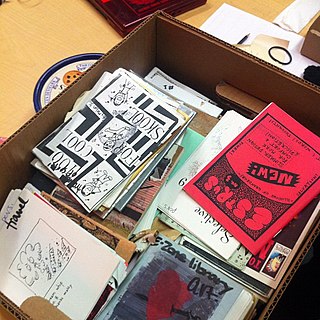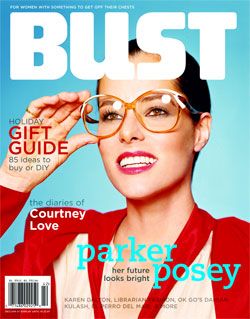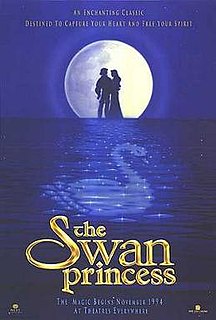A fanzine is a non-professional and non-official publication produced by enthusiasts of a particular cultural phenomenon for the pleasure of others who share their interest. The term was coined in an October 1940 science fiction fanzine by Russ Chauvenet and first popularized within science fiction fandom, and from there it was adopted by other communities.

"Do it yourself" ("DIY") is the method of building, modifying, or repairing things without the direct aid of experts or professionals. Academic research has described DIY as behaviors where "individuals engage raw and semi-raw materials and parts to produce, transform, or reconstruct material possessions, including those drawn from the natural environment ". DIY behavior can be triggered by various motivations previously categorized as marketplace motivations, and identity enhancement.

A zine is a small-circulation self-published work of original or appropriated texts and images, usually reproduced via photocopier. Zines are the product of either a single person or of a very small group, and are popularly photocopied into physical prints for circulation. A fanzine is a non-professional and non-official publication produced by enthusiasts of a particular cultural phenomenon for the pleasure of others who share their interest. The term was coined in an October 1940 science fiction fanzine by Russ Chauvenet and popularized within science fiction fandom, entering the Oxford English Dictionary in 1949.
Charles Gordon MacArthur was an American playwright, screenwriter and 1935 winner of the Academy Award for Best Story.

A punk zine is a zine related to the punk subculture and hardcore punk music genre. Often primitively or casually produced, they feature punk literature, such as social commentary, punk poetry, news, gossip, music reviews and articles about punk rock bands or regional punk scenes.
A minicomic is a creator-published comic book, often photocopied and stapled or with a handmade binding. In the United Kingdom and Europe the term small press comic is equivalent with minicomic, reserved for those publications measuring A6 or less.
Touch and Go Records is an American independent record label based in Chicago. After its genesis as a handmade fanzine in 1979, it grew into one of the key record labels in the American 1980s underground and alternative rock scenes. Touch & Go carved out a reputation for releasing adventurous noise rock by the likes of Big Black, the Butthole Surfers, and The Jesus Lizard. Touch & Go helped to spearhead the nationwide network of underground bands that formed the pre-Nirvana indie rock scene. Touch and Go helped preside over the shift from the hardcore punk that then dominated the American underground scene to the more diverse styles of alternative rock emerging at the time.

Bust is a women's lifestyle magazine that is published six times a year. The magazine is published by Debbie Stoller and Laurie Henzel.
Julie Doucet is a Canadian underground cartoonist and artist, best known for her autobiographical works such as Dirty Plotte and My New York Diary. Her work is concerned with such topics as "sex, violence, menstruation and male/female issues."
Aaron Elliott, better known as Aaron Cometbus, is an American musician, songwriter, and magazine editor, best known as the creator of the punk zine Cometbus.
David Ira "Davy" Rothbart is a bestselling author, Emmy Award-winning filmmaker, contributor to This American Life, and the editor/publisher of Found Magazine.
Paul Orfalea, nicknamed "Kinko" because of his curly red hair, founded the copy-chain Kinko's.

The Swan Princess is a 1994 American animated musical fantasy film based on the ballet Swan Lake. Featuring the voice talents of Michelle Nicastro, Howard McGillin, Jack Palance, John Cleese, Steven Wright, Sandy Duncan, and Steve Vinovich, the film is directed by former Disney animation director, Richard Rich, with a music score by Lex de Azevedo. The film was distributed by New Line Cinema in the United States and by Columbia TriStar Film Distributors International outside the US. It was released theatrically on November 18, 1994, where it received mixed reviews from critics and gross of $9.8 million against a $21 million budget, becoming a huge financial disappointment, partly due to struggling competition with a re-release of The Lion King (1994). The film would later became popular through home video releases and has since been followed by eight direct-to-video sequels and is the only film of the series to have a wide theatrical release.

Tigger's Honey Hunt is a video game that was released in 2000 for the Nintendo 64, PlayStation and Microsoft Windows. The game was developed by DokiDenki Studio a third-party developer, for Disney Interactive whom published the PC version and co-released the game on home consoles through NewKidCo in North America, while the European release was published by Ubi Soft. In 2002 the game was re-released in the UK as part of a two pack of Disney PlayStation games along with the game Donald Duck: Goin' Quackers. A spiritual successor titled Pooh and Tigger's Hunny Safari was later released, with different mini games but otherwise sharing much of the same story.

Tape Op is a bi-monthly American recording magazine that focuses on creative recording techniques. Subtitled The Creative Music Recording Magazine, Tape Op is independently published and was founded by Larry Crane in 1996. The magazine is based in Portland, Oregon.

"Miracles" is a song written by Marty Balin and originally recorded by Jefferson Starship, appearing on its 1975 album Red Octopus.

The Cheese Grater is a magazine produced at the University College London by a society of UCL Union, a students' union. It was first published in March 2004.

Dirty Plotte is a comic book series by Julie Doucet, published by Drawn and Quarterly from 1991–1998.
Michael Forster Rothbart is an American photojournalist. He is best known for his work documenting the human impact of nuclear disasters.

Preston is My Paris Publishing (PPP) is a photography-based project that creates publications, site-specific installations, live events, digital applications, education, writing, talks and workshops. It was started in 2009 by Adam Murray and Robert Parkinson as a photocopied zine with the intention of encouraging the exploration of Preston as a subject for creative practice and to focus more attention on the city. It has been described as "politically and photographically aware", "photographing and publishing a view of a disregarded, ordinary Britain" "in a playful way".











